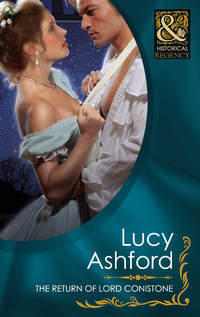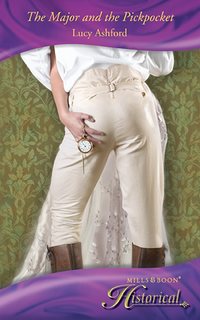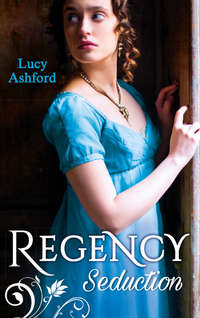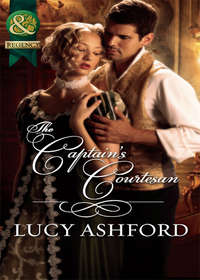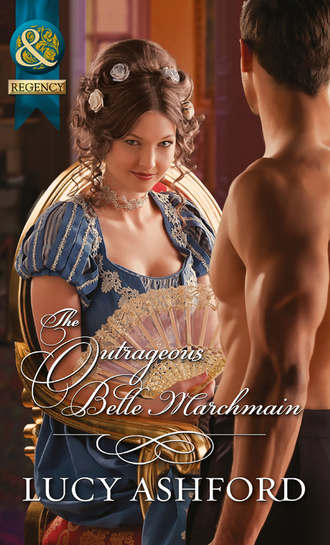
Полная версия
The Outrageous Belle Marchmain
Belle had grieved the loss of the land at Sawle Down, but had hoped that Edward would concentrate on making a success of what remained of their ancestral estate near Bath. Hoped that marriage and family responsibilities might perhaps be the making of him.
Some hope. The amount Davenant offered for the land had, in fact, turned out to be derisory—though he was now set to make a fortune from his purchase, because the sudden surge in price of Bath stone had made the old quarry there workable once more.
He must have known. Must have deliberately set out to swindle them. And now, with the London dusk closing in around her and Edward staring at her with that half-defiant, half-scared look that she knew of old, Belle rubbed her temples with her fingertips as her brother told her anew—rather resentfully, as if it were her fault—that last summer’s harvest had been a poor one, thanks to the rain that had ruined his wheat. ‘And the taxes, Belle! Last year this blasted government brought in new taxes on barley, on farm horses—anything that grew or moved, basically!’
Then Edward proceeded to remind her that the roof of Hathersleigh Manor had needed replacing entirely. ‘Uncle Philip neglected the place so badly,’ Edward complained. ‘The roof had to be fixed, or the thing would have caved in.’
Their father’s brother, the dour Philip Hathersleigh, had overseen the estate from their father’s death fourteen years ago until Edward reached his majority. Belle didn’t feel particularly close to Uncle Philip—even less to his shrewish wife Mildred—but she’d formed the opinion that Philip was a sound, careful man whose advice Edward had rashly spurned, with the result that Uncle Philip and his wife had retreated back to their estate in the north with little love lost.
‘Look after the paperwork, young man,’ Uncle Philip had said grimly to Edward. ‘And get yourself sound legal advice, if you want to stand any chance of holding your inheritance together.’
Edward had blithely ignored Uncle Philip’s warnings; her brother’s desk, Belle couldn’t help but notice on her March visit, was overflowing with neglected files and unread correspondence. And, of course, with bills.
‘So the new roof and taxes got you into debt,’ she now said steadily. From the back of the shop she could hear the merry voices of her assistants making their departure. Could hear Gabby’s laughter and Matt’s deep voice as he began to lock up. ‘Surely though, Edward,’ went on Belle, trying to keep calm, ‘the income from the estate could have kept your debts at bay?’
‘I did get on top of my debts, Belle. Or at least, I thought I had. You see, back in February—it was just before you came to stay with us, actually—I sold some of the sheep from that land Davenant purchased from me last year.’
‘You did—what?’ breathed Belle. She felt suddenly cold.
Edward shrugged, but his cheeks were pink. ‘I sold some of Davenant’s stock. He’s so rich I thought he wouldn’t even notice.’
Belle said, ‘You stole from him. Oh, Edward. You stole from that man.’
Edward jumped to his feet and walked around the candlelit shop with his hands thrust defiantly in the pockets of his new coat. ‘Stealing? Hardly—his sheep had strayed because he’d not bothered maintaining his fences. And dash it all, Belle, you could say that Davenant was stealing from me, you know? He paid me a pitiful amount for that land I sold him and if that isn’t stealing, I don’t know what is! Belle—Belle, are you all right?’
A spring evening, on Sawle Down. A stranger, whose arrogance had made her cheeks burn. Are you querying his right to this land? he’d asked cuttingly. And he’d only been one of Davenant’s labourers.
Something tightened painfully in her chest, as it did whenever she remembered that hateful day. She dragged herself back to the equally unpalatable present. ‘You were telling me you’d stolen some of Mr Davenant’s sheep.’
‘I wouldn’t exactly call it theft! But then Davenant found out about the sheep, curse it, and I got a lawyer’s letter …’
Edward told her all this very rapidly, almost indignantly, as Belle sat there in her bright-striped jacket with the green ribbons trailing from her hair.
I have fought. I have fought so hard, to make this new life for myself.
‘Davenant himself came to call on me two months ago,’ Edward was continuing. ‘In Somerset, just after you’d been to visit.’
Belle clenched her hands. ‘What’s he like?’
‘Oh, positively detestable, you can imagine, risen from rags to riches in a generation. “Miner Tom”, they called his grandfather—made the family fortunes from tin in Cornwall. As for Davenant—well, he’s a big fellow dressed in black, a positive boor—what more can I say? I tell you, Belle, not a pleasant word passed his lips during our conversation. He told me I was nothing less than a sheep-stealer—as if a few sheep should matter to him!’
Belle was finding she could scarcely breathe. She twisted the slender wedding ring on her finger. ‘Is this why you’ve come to London?’
‘Well, yes. Davenant demanded another meeting—demanded, can you credit it? He said he’d travel to Somerset again to see me if I preferred, but I—actually, I didn’t prefer it, not with the baby due, you know?’
Belle did know. She knew that Edward’s poor wife had already had two miscarriages within the past two years, and she dreaded to think what would happen if Charlotte lost this baby.
‘Anyway,’ went on Edward, ‘we met the other day at my hotel, and Davenant had all the figures with him about his sheep—now, isn’t it the sort of thing a normal fellow would leave to his man of business? But, no, I’d swear the creature had gone through all his stock lists with a toothcomb. Dash it, he must make thousands a week from his various interests!’ He gesticulated angrily. ‘Nevertheless, he told me that my debts regarding those dratted sheep could not be ignored.’
Outside in the Strand a crowd of merrymakers went by on their way to an evening in the clubs of St James’s. Belle waited for the noise to fade and asked, ‘Has Charlotte any idea of this?’
‘No,’ he said defiantly, squaring his shoulders. ‘Poor Charlotte, not a thing, and I don’t want her to. She’s delicate, you know?’
And what if I were delicate? Belle bit back the retort, knowing it was ridiculous to expect Edward ever to see her as anything other than his capable, shrewd-headed older sister. But she had to think. This could be disastrous.
Adam Davenant was after Edward, not her. But her shop, her own small savings—would they be implicated? Would everything she had worked so hard for since her husband’s death be lost?
For a moment sheer panic clawed at her chest. Somehow she fought it down and forced herself to say calmly, ‘Is there any possibility that Mr Davenant will let you pay this sum back gradually, month by month?’
‘Good God, I doubt it. He’s a grasping wretch, Belle!’ As Edward distractedly pushed his dark hair back from his forehead, he unintentionally laid bare the old, white scar that puckered the skin there. ‘He’s told me I’ve got to bring the money to his house in Mayfair within the week or he’ll press charges. Damn it, if I had it, I’d hang it round the necks of a few sheep and get them herded up the steps of his fancy house.’
Belle briefly rested her forehead in her hand.
‘You’ll help me, won’t you?’ Edward pleaded. ‘Charlotte. Our home. The new baby … I can’t go to prison, Belle. I can’t …’
Belle had always been aware that the once-renowned Somerset estate of the Hathersleigh family had, thanks to the profligacy of successive generations, dwindled to very little—unlike, unfortunately, the aspirations of its title-holders.
She’d also had to face up to the fact that her own prospects were bleak when her husband died five years ago in one of Wellington’s final campaigns of the war. She’d had to make harsh choices: either to move in with Edward at Hathersleigh Manor, or to earn her own living. In fact, imposing herself on Edward never seriously crossed her mind and the idea of being a governess or companion horrified her. Certain offers she’d received from so-called gentlemen repelled her even more.
Then inspiration had come. She had always been a talented seamstress and was fascinated by the women’s fashions that ebbed and flowed like the long Napoleonic wars, so—in the face of her brother’s disapproval—she’d decided to open a dress shop in London.
Her designs were bold and eyecatching. Outrageous, some of the ton’s older matrons were heard to intone witheringly. Her shop, though small, was well situated in the Strand, and she and Gabby lived in the two rooms above it. Soon she’d begun to attract customers who were tired of soft pastels and wanted something different, but she was by no means making a fortune. She was lucky if her own rent and bills were paid every quarter day. How on earth could she deal with Edward’s debts?
Now, as the candles flickered around the bright silks and satins in this little shop, which she felt sick at the thought of losing, she looked at her brother steadily and said, ‘There’s no point in my even asking the amount of your debt to Mr Davenant, Edward, for I know I won’t be able to pay it. But I will go and see him for you.’
‘Go and see him?’ Her brother was astonished. ‘And then what? I’m damned if you’ll grovel on my behalf in front of that—that nouveau-riche upstart!’
A flash of anger darkened Belle’s eyes. ‘I have never grovelled in my life. I will simply explain that you realise you have made a grave error—’
Edward jumped up, about to protest, but something in Belle’s steady gaze made him clamp his lips together and sit down again.
‘That you’ve made a grave error,’ she repeated, ‘and would be grateful if Mr Davenant would accept your word of honour that your debts will be paid off steadily over—what? Three years, Edward?’
He looked sullen now, a little boy again. ‘Three years! I suppose so. Times are hard, though Davenant’s thriving, blast the fellow …’
‘I shall go and see him,’ said Belle quietly. ‘And I’ll let you know how I get on.’
He got up to pace to and fro, nodding. ‘Very well. And put on some charm, eh? Come to think of it, Belle, a second marriage for you, to some rich fellow—not Davenant, of course, God forbid—could be the answer for both of us. You’re really not at all bad-looking, if you’d just make an effort not to frighten the fellows off with those startling clothes and that sharp tongue of yours.’
This time, there was an edge of ice in her voice. ‘Let me assure you I have absolutely no intention of getting married again. Ever.’
Her brother shrugged. ‘Suit yourself. I’ll stay on in town for a week or so at Grillon’s, so you can let me know there when it’s all sorted with Davenant, can’t you?’ He started putting on his hat, checking his reflection in the mirror.
‘Edward,’ Belle said suddenly. ‘You’re not going to visit any of the gambling dens, are you?’
He swung round. ‘Gambling dens? Never. And thanks for this, Belle. Some day I’ll return the favour.’
Breezily Edward let himself out. Belle sat with her hands frozen in her lap, immobile.
Gabby came in rather hesitantly. ‘Are you free, madame? I wanted to tell you that there was a little trouble earlier.’
Belle’s heart sank anew. ‘What kind of trouble?’
‘Jenny told me about it. It appears that when you and I were measuring Lady Tindall in the back workshop for her new gown, a customer came in and complained about a cuff that was loose on a pelisse she bought last week.’
‘What did Jenny do?’
‘She mended it there and then, and the customer left—but she was so unpleasant, Jenny said! And she declared she would not be using our shop in the future!’
‘Well, it sounds as if we’re better off without her,’ Belle soothed and Gabby went off, looking happier, to tidy the workroom. Originally from Paris, the lively French girl had come to Belle’s notice when she’d advertised for an assistant seamstress and Gabby had proved invaluable, good both with the customers and with the two girls Belle also employed.
In addition, it did no harm that Matt was smitten by Gabby—honest, stolid Matt Bellamy, who worked most of the time at his brother’s stables just down the road, but was a joiner by trade. Belle had hired him to fit out her shop and he continued to do odd jobs for her. Though Gabby teased Matt outrageously, Belle could see that secretly Matt adored her.
Together against the world, Belle and her staff were a good team. But—Edward. Her brother had flushed with anger when she’d mentioned gambling dens, yet Belle couldn’t help remembering that when he’d first come into his inheritance the lure of the gaming parlours had pulled him time and time again to London.
Marriage to Charlotte had at least cured her brother of that particular weakness. But trouble was still lurking, clearly. In fact, Belle felt that nothing had been quite right in her life since she’d clashed with the forbidding quarryman on Sawle Down. Just the thought of that encounter sent ripples of unease through her.
Stay away from me! she’d lashed out at him. Why had she been so rude, so hateful to him? Because he was clad so roughly? Because he was employed by Mr Davenant?
She’d never even met Davenant, but one thing was for sure. If he ever learned of the insults she’d uttered about him that day, then she and Edward were finished for good.
Chapter Three
London—four days later
Adam Davenant had issued the invitations to the meeting at his house in Clarges Street only yesterday, but despite the short notice every single person had come and he was under no illusions as to why. Quite a few of them had never visited his Mayfair mansion, and they would all be desperate to get inside and assess his wealth.
Greeting them, he’d cynically noted how their eyes leapt out on stalks as they registered the expensive if discreet furnishings. The number of liveried servants. The superb wine and food on offer. Everything was perfect; it damned well had to be when people were all too keen to rake up your lowly origins.
Though the plentiful wine was perhaps a mistake, Adam decided as the boasting grew louder amongst the rich and ruthless men who’d gathered to feed on the cold repast set out on the vast table in his first-floor dining room. When the boasting began to turn to bickering, Adam knew it was time to start the real business of the day. He rose to his feet at the head of the table and, as was his way, stated his case bluntly.
‘In Somerset there’s stone to be quarried that’s as good for building, gentlemen, as any in the world. With London expanding so rapidly there’s a never-ending market, and all of us—whether landholders or business investors—stand to gain. But the issue I wish to discuss today is—transport.’
Adam was dressed impeccably in black with a snow-white, plain cravat and he made an imposing figure. Though not yet thirty, he carried the authority of a man who was accustomed to power.
He carried the authority of money.
All eyes were on him as he turned to point to the large map hung on the wall behind him. ‘Gentlemen,’ he went on, in the polished voice in which there was no trace of his grandfather’s west country vowels. ‘What we need is a railway to convey this fine new stone from the Somerset quarries to the Avon canal and thence by water to London.’
‘There are railways already, Davenant,’ someone called out.
‘You mean tramways for trucks, pulled by horses or powered by gravity,’ replied Adam. ‘I’m talking about a steam railway. All of us with goods to transport from Bath to London—not just stone, but farm produce and manufactured goods, too—would benefit. The carrying times would be halved and the profits doubled.’
Already several men were nodding and murmuring agreement. But Lord Rupert Jarvis—who had, Adam noted, been eating and drinking steadily since he arrived—was sneering openly. ‘You mean your profits doubled, Davenant. Not mine.’
The blond-haired Jarvis, as well as possessing large estates in Somerset, owned a big haulage business with networks of carriages and teams of horses all across the south of England. Known to be a cruel master of both men and beasts, Jarvis saw the emergence of the railways as the coming of Satan.
Adam countered him with icy calmness. ‘There’s still room for all forms of transport, Lord Jarvis. But we cannot ignore the chances that steam offers. Some of you will already know that the Yorkshire mine owner Charles Brandling has been using steam engines to carry his coal to the ports for years. I’m proposing that each of us become shareholders in this new Somerset railway. And apart from the profit motive, we’ll all be aware, I’m sure, that a railway would spare our men and horses much hard labour.’
‘Siding with the workers, Davenant? They’re damned lucky to have jobs,’ said the sleekly dressed, coldly handsome Jarvis crudely. ‘If they aren’t up to it, tell ‘em to get their wives or brats to help out. That’s what I do.’ He looked challengingly round at the assembled company.
‘I’m sure you do,’ said Adam. His chiselled face was expressionless, but his grey eyes were hard as granite. A tense silence had fallen.
Jarvis leaned back in his chair. ‘Show us your route, Davenant,’ he said challengingly. ‘Doubtless you’ve got it all worked out.’
Adam turned and pointed to his map. ‘Here’s the city of Bath, with the stone quarries to the south and the River Avon flowing close by. And here—’ he pointed again ‘—is the canal that links the Avon to the Thames, offering seventy miles of navigable waterway. You’ll see that the most practical route for a new railway would be from Monkton Sawle straight to the canal as it runs south, just before it swings east out of Somerset.’
There were murmurs and nods of assent. Then Jarvis, who’d been demolishing another portion of venison pie, cut in, ‘I suppose you realise you’ll need to cross my land for the last half-mile of your proposed railway?’
‘In order to reach the canal at Limpley Stoke, yes, I would need to cross your land,’ said Adam. ‘Just as I’d need the consent of the other landholders gathered here today who would be affected. It’s in all our interests, beyond doubt.’
‘Like hell it is,’ growled Jarvis, wiping pastry crumbs off his lips. ‘And I’ve listened to enough of this. I’m off, to another more interesting appointment.’
Adam politely indicated the plate on which stood the remainder of the venison pie. ‘Certainly. But I would hate you to leave hungry. Shall I ask one of the servants to wrap up the rest of that pie so you can take it with you?’
There was a stunned silence. Then someone chuckled and began to applaud; Jarvis’s appetite for a free meal was well known.
Jarvis pushed back his chair angrily. ‘Damn you, Davenant,’ he muttered and hurried from the room, letting the door slam behind him.
Some of the others spoke up then. ‘I’m with you, Adam,’ said Tobias Bartlett firmly.
‘And me.’ ‘Yes, you can count me in on your scheme, Davenant.’ More pledges of support echoed round the room.
But there was still the problem of damned Jarvis; the big map made it all too clear that Jarvis’s acres of land at Limpley Stoke barred the most direct route between Adam’s quarry and the canal. Any other route would add miles to the journey.
‘It’s not as if Jarvis makes much use of that land anyway,’ Adam’s friend Bartlett was grumbling. ‘And surely he realises he could expect a hefty share of your profits if he negotiated with you?’
‘I don’t think,’ said Adam softly, ‘that Jarvis’s motive is based on thoughts of profit.’
Siding with the workers, Davenant? Jarvis had sneered.
Well, sometimes Adam wished he and Jarvis could resolve their differences like common workmen—with their fists. Then he would knock Jarvis’s block off.
He looked thoughtfully down at his strong hands. As a boy at Eton, Adam had briefly been taunted with Miner Tom’s name—until he’d pummelled the sneers from his rash tormentors’ faces. On coming into his fortune he’d learnt to fend off his detractors in equally efficient ways. Both in his manners and attire he was unpretentious but faultless, never letting his cool façade slip. Being mighty rich he was happily accepted by most of society, especially by those who had daughters to marry off.
Jarvis, despite his oily good looks and title, was secretly despised by the ton for his coarse behaviour. If it wasn’t for his damned land, Adam would have been happy to cut him dead—or thump him.
A young housemaid came in just then with more good wine from Adam’s cellars. Adam didn’t partake—he didn’t enjoy fuddling his wits—but went instead to join the group who’d gone to pore again over the map of Somerset.
‘If Jarvis won’t give way, Adam,’ a Somerset neighbour was suggesting, ‘you could take the railway down the valley to Midford then head north—see?—to skirt his estates for the last mile. As I said, I would happily sell some land to you in return for some shares in the project.’
Adam was heartened that so many of these men were, like him, all for progress. ‘We’ll manage without Jarvis somehow,’ he said. ‘Though if we do head north, we’ll have to blast some of the higher contours out of the way, here, and here …’
‘It’ll be worth it,’ said another Somerset landowner eagerly. ‘Davenant, you mentioned the coal mines in the north-east; I’ve heard rumours that Stephenson up in Stockton is planning to transport people as well as coal on his railways! Steam is the future, and this scheme of yours gets my backing, if only to take the sneer off Jarvis’s face. The way he treats his men and his horses is despicable. Thank God he left early, is all I can say. We can make some progress now, Adam … Adam?’
‘Hmm?’
It didn’t happen often, but Adam, by the window, was temporarily distracted. In fact, he couldn’t take his eyes off a remarkably shabby carriage that had just pulled up at the far end of Clarges Street, from which a woman was getting out; a woman wearing a big straw hat and dressed in a startling ensemble of turquoise and pink as striking on her pert figure as icing on a festive cake. She was probably an expensive courtesan, Adam decided, hired by one of his wealthy neighbours for an afternoon of bed sport. Shrugging, he turned back to his guests—then paused again.
Something about her looked familiar. The way she stepped proudly out of that ridiculous carriage. The slenderness of her waist, outlined by her short pink jacket; the swell of her deliciously trim derrière as she stood on tiptoe to say something to her coachman …
She reminded him of that woman on Sawle Down.
The memory made his breathing hitch. She’d insulted him to kingdom come—and he’d stood there and taken it from her! When what he should have done—the thought occurred to him time after time, usually at damnably inconvenient moments like now—was take her in his arms. Hold her close. Drown out those defiant protests of hers with a kiss …
Definitely time to get back to his guests, and his railway.
It was Belle, and she was standing on the pavement at the far end of Clarges Street, arguing with Matt. ‘This will do, Matt!’ she announced firmly after letting herself out. ‘I can walk the rest of the way, I assure you.’
Matt Bellamy, up on his seat, frowned down at her. ‘Here, Mrs Marchmain? But we’re not quite there yet.’
I know, thought Belle tightly. And no way on earth am I going to risk allowing Mr Davenant or his servants to see me arriving in this rickety old coach.
She’d tried already to shut the carriage door, but failed; now she tried again. Blast, it was nearly falling off its hinges.
She’d hoped to make an impression arriving outside Mr Davenant’s house and had asked Matt to borrow something suitable from his brother’s stables. But when Matt had turned up outside her shop at half-past two with this, Belle had been secretly horrified.





